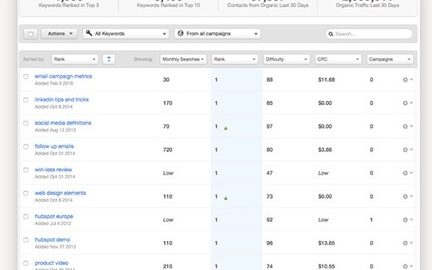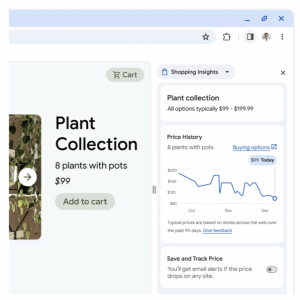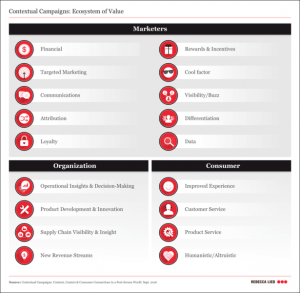Two words: keyword research. The concept seems simple, on its surface. But as soon as you start peeling back the layers, it’s easy to succumb to a free-fall down a well of conflicting or never-ending questions.
For example, does effective keyword research take a long time? How does the inbound approach to search ranking actually work? What are the best tools? How can you compete for those super popular keywords, anyway? Or should you even bother with those at all?
These are just some of the most commonly asked questions when it comes to the age-old debate on whether or not keyword research still works. Let’s take a deeper look.
Keywords Matter
Let’s start by unpacking the most basic question out there: What is keyword research?
Essentially it is when people use keywords to find and research actual search terms that individuals enter into search engines. The knowledge about these actual search terms (search volume, competitiveness, etc.) can then help inform your content and marketing strategy.
Why would this matter? On average, almost two-thirds of your web traffic comes from organic search, which is driven by keywords. Or, more simply, keywords are the search engine equivalent of the questions your would-be prospects are trying to answer. (And you want to position yourself as the answer.)
Although the practice of performing keyword research may still be happening, the process of how we conduct it has undoubtedly evolved. From the research itself to the targeting process, things are different than than they were five years ago. Here’s an example.
Because that data is hidden, we need to go deeper — looking at things like Google Suggest and related searches, which are down at the bottom of the page. Moreover, we need to start conducting customer interviews. Today, we develop our core list of keywords through a focused content strategy that forces us to think of the audiences we want to target.
That means it’s imperative to get inside the head of your personas and to uncover their pain points. Without this kind of discussion, you’ll end up putting energy behind unfocused strategies with scattershot results.
Best Practices
Keyword research is extremely effective, but there are a few important steps you need to follow to guarantee you are getting the most value out of it.
Step 1: Create a list of relevant topics.
Think about the generic topics (about five to 10 different areas) you want to rank for. We aren’t getting into the specifics just yet here, but keep in mind that these should be high-level topics that pertain to business objectives or revenue goals. For instance, a particular service line you intend to focus on, during a specified timeframe.
Step 2: Complete your generic topics with more specific keywords.
Here is where you identify some keywords that fall into those generic categories from earlier. These are keyword phrases you think are important to rank for in the search engine results pages.
Pro tip: Make sure you have an efficient amount of long-tail keywords. Long-tail keywords contain longer keyword phrases, typically including three or more words.
Now here’s a quick pop quiz:
Which of the following do you think is easier rank for?
- Designer purse
- How to care for your Louis Vuitton purse
The answer is No. 2. This is because someone who is looking for something that specific is most likely a more qualified searcher for your product or service than someone looking for something more generic. In this case it’s easier to narrow down exactly what your customer may be looking for since they typed such a specific phrase into the search bar.
Step 3: Research related search terms.
I love this step. There are some seriously awesome SEO tools out there to help research your keywords and provide suggestions, but keep on reading – I’m getting to those shortly.
Step 4: Analyze how your competitors are ranking for these keywords.
It’s important to understand what keywords your competitors are trying to rank for. This last step helps you evaluate your keywords in yet another way.
Put it to use
Looking for some tips and tricks to help get you started? Here are five keyword research tool options that will improve your SEO from the beginning.
- HubSpot SEO
If you use HubSpot, their Keywords tool (under the Reporting dropdown menu) can help you optimize the right keywords, improve your rank over time and analyze your competitors all in one place.

- SEMRush
Here at Quintain, we love SEMrush. It provides insight into your competitors’ strategies in display advertising, organic and paid search and link-building.

- Suggested Searches
Simple, yet effective. These are the search predictions at the bottom of the page after you type in your keyword in Google.

- GoogleTrends
Find out what keywords and searched terms are trending near you right now – great when you’re completing final optimization on a blog.

- Google Suggest
One of the best keyword research tools is Google autocomplete. These suggested queries provide ideas on how people are using our targeted keywords.

Final Thought
Now that you understand that keyword research definitely still matters, remember that it’s not meant to be the strategy – although it certainly supports what you’re trying to accomplish.
Put simply, if your content isn’t attracting the right visitors (meaning your keywords aren’t targeting the right visitors) you may still see the traffic spikes you want, but not the conversions. If you do see the conversions, these leads may go nowhere because you didn’t use your target keywords effectively, or you failed to have the proper email or lead scoring workflows in place to nurture those leads.
Keep in mind, however, that your keyword research needs to be aligned with your persona’s pain points, which in turn is aligned with your overall revenue, business and organizational goals. Remember to use specific long-tail keywords and understand the context of your keyword research from the start.
Finally, it’s important to re-evaluate these keywords every few months, at the minimum. As you gain even more authority in the search engine response pages, you can begin to add more keywords to your lists and develop additional areas to target.
Digital & Social Articles on Business 2 Community
(74)
Report Post








